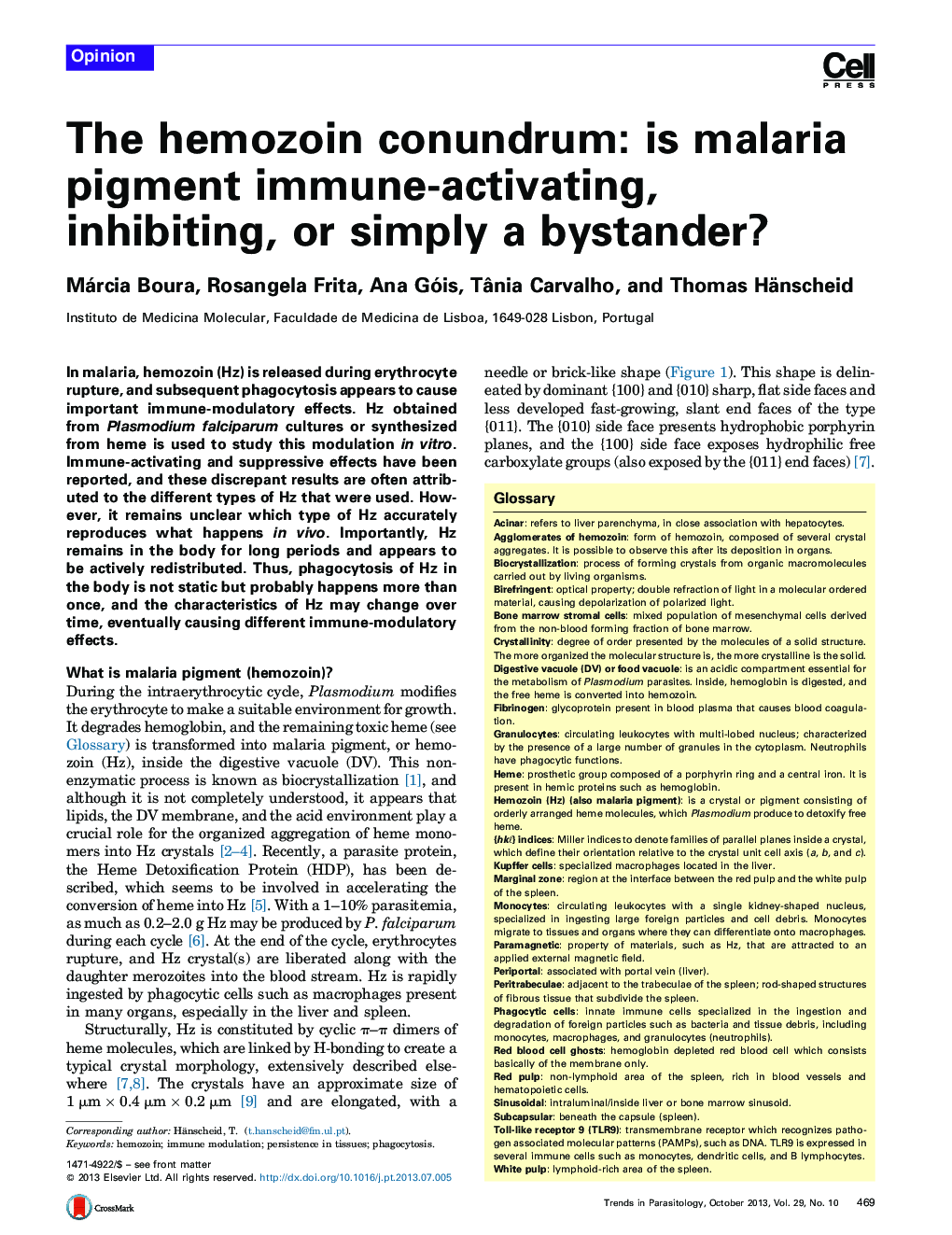| Article ID | Journal | Published Year | Pages | File Type |
|---|---|---|---|---|
| 3423076 | Trends in Parasitology | 2013 | 8 Pages |
•An attempt to reconcile contradictory immune effects attributed to hemozoin (Hz).•Hz may be repeatedly phagocytosed by different phagocytic cells.•During the successive re-ingestions Hz may change its characteristics.•Hz may have different immunological effects due to the changes endured over time.•Hz may not only be active at the time of liberation from erythrocytes.
In malaria, hemozoin (Hz) is released during erythrocyte rupture, and subsequent phagocytosis appears to cause important immune-modulatory effects. Hz obtained from Plasmodium falciparum cultures or synthesized from heme is used to study this modulation in vitro. Immune-activating and suppressive effects have been reported, and these discrepant results are often attributed to the different types of Hz that were used. However, it remains unclear which type of Hz accurately reproduces what happens in vivo. Importantly, Hz remains in the body for long periods and appears to be actively redistributed. Thus, phagocytosis of Hz in the body is not static but probably happens more than once, and the characteristics of Hz may change over time, eventually causing different immune-modulatory effects.
